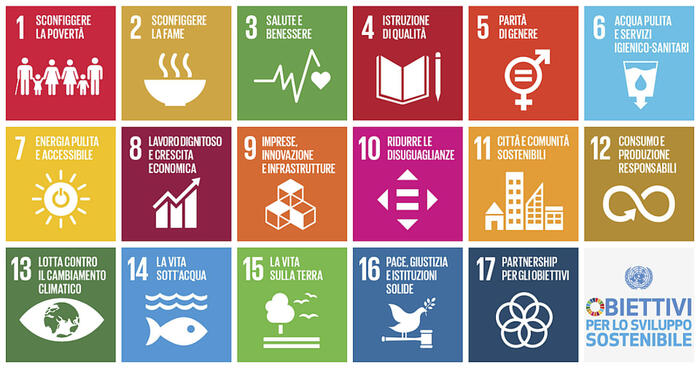Enlarge image
Commuters in Beijing: China has also left the demographic optimum behind
Photo: Kevin Frayer / Getty Images
We have disappointing decades behind us, there is no other way to put it.
Actually, it shouldn't have come to that.
We should be wealthier by now.
But who knows, maybe the post-Covid years will bring some positive surprises.
Such is the situation: everywhere in the West, the productivity of employees is hardly increasing any more. In many emerging countries, developments are now moving in the same direction. That is bad: Ultimately, the prosperity of a society depends on the added value of its employees. As productivity increases, there is more to distribute. More output per hour worked enables rising levels of prosperity, especially strong wage increases.
John Maynard Keynes, the British economist of the century, predicted such rapid leaps in productivity around 1930 that by 2030 people would only have to work 15 hours a week. The main problem people will face will be how to use their time wisely. "The economic possibilities of our grandchildren," wrote Keynes, would be so magnificent that they hardly needed to work any more.
We are far from that.
Economic growth in the pre-Covid years was based on more work, not more productivity.
In the previous decade, the comparatively good development in Germany was primarily the result of more work.
Between 2010 and 2019, the number of employees in Germany rose by around four million, also due to immigration from the rest of Europe.
The total volume of work reached a record 62.6 billion hours annually by the end of the decade.
In the eurozone, the development was similar with a time lag.
The national product rose because more and more people were working - not because the employees had achieved more in the same amount of time.
A pretty weak picture for a model of society that likes to feel superior to the rest of the world.
Progress comes to a standstill - seriously?
In earlier decades, labor productivity in the G7 economies rose by an average of around two percent per year.
The rate plummeted over the 2000s.
Since the financial crisis of 2008/09, it has been bobbing around zero in the established economies, as figures from the World Bank show.
China and India achieved annual growth rates of between six and seven percent in the years before the Corona crisis.
But even there the numbers were significantly higher.
Around the globe, progress seems to be slowly coming to a standstill.
How can that actually be?
Shouldn't globalization actually have increased productivity, as economic theory promises?
Aren't we living in an era of technological breakthroughs?
Why are the internet, smartphones, biotechnology, renewable energies and all the other great innovations of the past two and a half decades showing up everywhere, just not in the productivity statistics?
Because so far there has been no need for it.
But that will change fundamentally in this decade.
display
Henrik Muller
Short-circuit policy: How permanent outrage destroys our democracy
Publisher: Piper
Number of pages: 256
Publisher: Piper
Number of pages: 256
Buy for € 22.00
Price inquiry time
06/13/2021 3:57 p.m.
No guarantee
Order from Amazon
Order from Thalia
Order from Weltbild
Product reviews are purely editorial and independent.
Via the so-called affiliate links above, we usually receive a commission from the dealer when making a purchase.
More information here
There have been a lot of attempts to explain the slowdown in productivity dynamics.
Here is a selection:
All useful things have already been invented.
Aging societies are less innovative and tend to "secular stagnation".
The usual economic statistics do not capture the progress made by digitization.
Turbo capitalism has made companies prefer to distribute money to their shareholders rather than invest.
The low interest rate policy that the central banks have been pursuing for years acts like a subsidy for fast gaming, so that too little is invested in new products and processes in the long term.
The financial crisis of 2008/09 put such a strain on the banks that for years companies could hardly get credit for productivity-enhancing investments.
The states have ruined the public infrastructure, so that the private economy has remained below its possibilities.
Social security nets undermine entrepreneurship, but no society can flourish without entrepreneurs.
There may be something to many of these arguments.
But they are overlooking a fundamental international trend of the past few decades: the dramatic expansion of the labor supply.
To put it bluntly: The combination of globalization and favorable demography has made productivity gains superfluous.
Few children, few old people, many working people
A decade and a half ago, Harvard economist Richard Freeman described the "great doubling."
The integration of the world economy would increase the number of those who participate in the international division of labor from around one and a half to three billion people, he calculated.
The effects can hardly be overestimated: If there was a shortage of workers somewhere, companies could switch to other countries, other suppliers, other companies.
People weren't scarce.
On the contrary.
There was little reason to be more efficient when workers were plentiful and cheap.
The opening of the borders came at a time when many countries were reaching their demographic optimum. In other words, the birth rates had already fallen, while the number of people of employable age was still increasing and the proportion of the elderly in the population was still low. This development was particularly pronounced in China.
In the meantime, however, a trend reversal has set in: In Europe and Japan, the number of people of productive age is already falling.
China has just passed its maximum and is facing a drastic decline.
South America will reach its demographic peak by the end of the decade, India in three decades.
In the USA and Canada, the employment potential is only increasing slightly thanks to immigration.
In addition, there is a good deal of protectionism and the intensifying rivalry between the great Western powers and China.
Previously open international markets are being criss-crossed by new borders.
Fewer heads, more know-how
more on the subject
Unemployed despite the economic miracle: poor or just lazy? By Ines Zöttl, Washington
Labor shortages are becoming the new normal. There are currently more than nine million vacancies in the USA, and more than 650,000 in Germany. The more the post-Corona upswing picks up speed, the more painful the bottlenecks will be on the labor markets.
It would be very surprising if companies just put up with this development. You will try to counteract this with increased use of technology and new organizational structures. The technologies for this are available: digitization is already well advanced and has also picked up speed during the pandemic-related shutdowns. Robots are becoming more diverse and flexible in their use - in the household, in gastronomy, in trade. Artificial intelligence supports highly qualified service jobs. The McKinsey Global Institute estimated some time ago that labor productivity could rise again at rates of 2 percent.
Business investments are a condition for increased productivity dynamics.
In order to get more out of the employees, more capital and know-how are required.
This is exactly what is now on the agenda for many companies.
They are investing again, increasing their business assets.
Morgan Stanley analysts say investment activity is “red hot”.
Research and development spending also appears to be increasing, as Unesco observes, which is also a productivity driver.
If things go well, an upswing on anabolic steroids could actually ensure sustainable increases in prosperity and at the same time contain the risk of inflation.
Some aging societies could still prove to be quite productive.
The main economic events of the week ahead
Open assembly area
Brussels -
Joe & Co.
- NATO summit, for the first time with US President Joe Biden, who is trying to strengthen the transatlantic alliance, especially against the strategic challengers China and Russia.
Luxembourg -
Distribution Issues
- Meeting of EU Labor and Social Affairs Ministers.
Among other things, it is about the minimum wage in Europe.
Expand Tuesday area
Brussels -
Great Powers and a Half
- EU-US Summit.
US President Biden meets with the leaders of the European Union.
Luxembourg -
Again and again Corona
- meeting of EU health ministers.
Once again, it's about the fight against the pandemic.
Expand Wednesday area
Geneva -
killer vs. careerist
- Biden meets Putin on neutral ground.
The meeting was preceded by interviews in which the US president answered yes to the question of whether Putin was a killer, and the Russian president said of Biden that he was a political careerist.
Washington -
The Fed decides
- The US Federal Reserve decides on further monetary policy and updates its forecast for the further course of the US economy.
Expand Thursday area
Luxembourg -
Surveillance
- Eurogroup meeting.
On the agenda is the development in the former crisis countries, Greece, Portugal, Ireland, Cyprus and Spain, which received conditional aid loans during the euro crisis.
Open area Friday
Luxembourg -
Corona Fund
- Meeting of EU economics and finance ministers. In particular, it is about the Corona development fund, which is due to pay out money from this summer.















